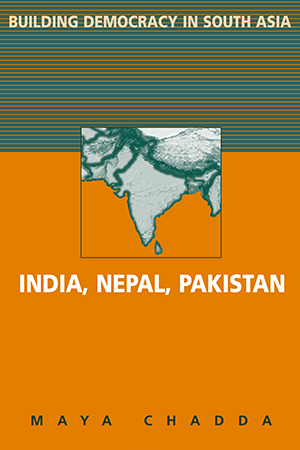
- 2000/248 pages
Building Democracy in South Asia:
India, Nepal, Pakistan
Chadda contends that any discussion of democratization must be founded on mapping its course amid the constraints of state consolidation, national integration, and conflicting notions of individual and group rights. Within that context, she deconstructs four sets of developments: the repeated dismissals of elected governments in Pakistan, the dilemmas produced by changes in caste politics, separatist confrontations in Punjab and the northeast, and the end of Congress Party dominance in India; the political and ideological contest over Kashmir in both India and Pakistan; and the Restoration of Democracy movement leading to a constitutional monarchy in Nepal. She exposes the underlying goals and logic of these political events to identify regime objectives and priorities, capabilities, and responses to various types of challenges.
Concerned with identifying the "rules of the political game" against the backdrop of changes in international politics, Chadda addresses two broad questions: have the political events of the 1990s been a step toward pluralism and democracy as understood in the dominant Western model; or do they demand a new definition of democracy? Ultimately, she argues, whether political development is a step toward or away from democracy can be determined only in relation to the competing demands on the state.







